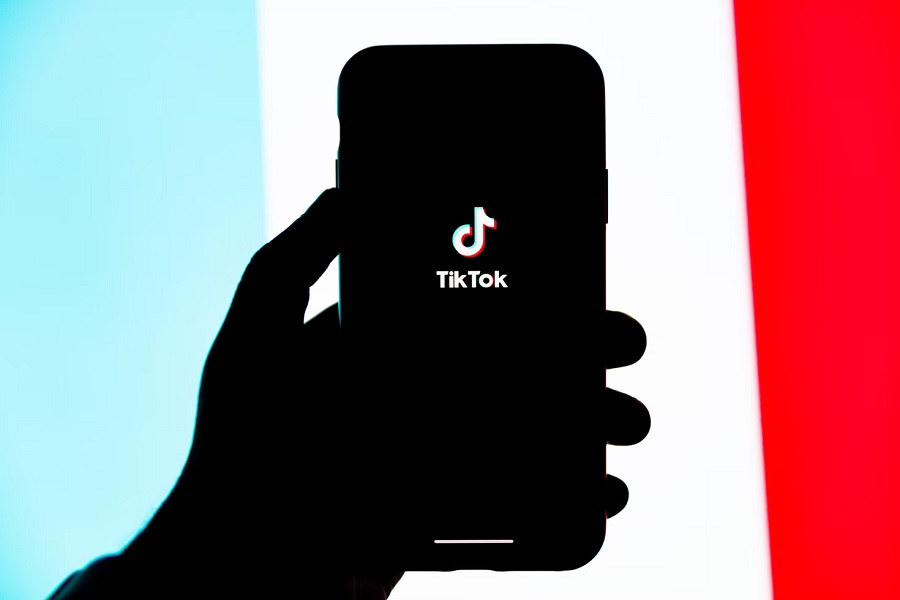TikTok users in Russia have lost access to some key features of the popular app for an indefinite period. Conducting livestreams and sharing new posts through the app has been suspended on Sunday as one of the tech-related outcomes of the ongoing conflict between Russia and Ukraine.
In an official statement, the company maintained that its platform provides an “outlet for creativity and entertainment” as a “source of relief … during a time of war.” TikTok will not completely halt its services in the country, unlike other major tech companies. But the Chinese-owned social media app announced on Sunday that users in Russia will not be able to livestream content or post new videos. But they can still send and receive messages through the app.
“Our highest priority is the safety of our employees and our users, and in light of Russia's new ‘fake news’ law, we have no choice but to suspend livestreaming and new content to our video service in Russia while we review the safety implications of this law,” TikTok said in an announcement on Sunday.
Russia passed a new law on March 4 aimed at media outlets and individuals sharing what the government deems as misinformation on its ongoing conflict with Ukraine. Anyone sharing online content that Russian authorities determine to be “fake news” could face fines or even jail time of up to 15 years under the new legislation. Since the new law was passed, foreign news outlets like CNN, ABC News, and the BBC announced they will suspend operations and reporting in Russia to protect their journalists and media crew.
TikTok did not have a specific timeline when livestreaming and posting new videos will be available again in Russia. But the company said it will “continue to evaluate the evolving circumstances.”
Before taking down livestream and new post features, TikTok assured users that it has guidelines and methods in place to detect misinformation being circulated on its platform. The company said it has improved its real-time detection of “harmful content” so it could take the necessary action against posts and livestreams with “unoriginal or misleading content.”
Photo by Solen Feyissa on Unsplash



 Microsoft Gaming Leadership Shake-Up: Phil Spencer Retires, Asha Sharma Named New Xbox CEO
Microsoft Gaming Leadership Shake-Up: Phil Spencer Retires, Asha Sharma Named New Xbox CEO  Hyundai Motor Plans Multibillion-Dollar Investment in Robotics, AI and Hydrogen in South Korea
Hyundai Motor Plans Multibillion-Dollar Investment in Robotics, AI and Hydrogen in South Korea  Federal Judge Blocks Virginia Social Media Age Verification Law Over First Amendment Concerns
Federal Judge Blocks Virginia Social Media Age Verification Law Over First Amendment Concerns  Nvidia Earnings Preview: AI Growth Outlook Remains Strong Beyond 2026
Nvidia Earnings Preview: AI Growth Outlook Remains Strong Beyond 2026  Anthropic Resists Pentagon Pressure Over Military AI Restrictions
Anthropic Resists Pentagon Pressure Over Military AI Restrictions  Amazon’s $50B OpenAI Investment Tied to AGI Milestone and IPO Plans
Amazon’s $50B OpenAI Investment Tied to AGI Milestone and IPO Plans  DeepSeek AI Model Trained on Nvidia Blackwell Chip Sparks U.S. Export Control Concerns
DeepSeek AI Model Trained on Nvidia Blackwell Chip Sparks U.S. Export Control Concerns  xAI’s Grok Secures Pentagon Deal for Classified Military AI Systems Amid Anthropic Dispute
xAI’s Grok Secures Pentagon Deal for Classified Military AI Systems Amid Anthropic Dispute  Snowflake Forecasts Strong Fiscal 2027 Revenue Growth as Enterprise AI Demand Surges
Snowflake Forecasts Strong Fiscal 2027 Revenue Growth as Enterprise AI Demand Surges  OpenAI Faces Scrutiny After Banning ChatGPT Account of Tumbler Ridge Shooting Suspect
OpenAI Faces Scrutiny After Banning ChatGPT Account of Tumbler Ridge Shooting Suspect  Coupang Reports Q4 Loss After Data Breach, Revenue Misses Estimates
Coupang Reports Q4 Loss After Data Breach, Revenue Misses Estimates  Nintendo Share Sale: MUFG and Bank of Kyoto to Sell Stakes in Strategic Unwinding
Nintendo Share Sale: MUFG and Bank of Kyoto to Sell Stakes in Strategic Unwinding  OpenAI Targets $600B Compute Spend as IPO Valuation Could Reach $1 Trillion
OpenAI Targets $600B Compute Spend as IPO Valuation Could Reach $1 Trillion  Meta Signs Multi-Billion Dollar AI Chip Deal With Google to Power Next-Gen AI Models
Meta Signs Multi-Billion Dollar AI Chip Deal With Google to Power Next-Gen AI Models  OpenAI Hires Former Meta and Apple AI Leader Ruomin Pang Amid Intensifying AI Talent War
OpenAI Hires Former Meta and Apple AI Leader Ruomin Pang Amid Intensifying AI Talent War  Hyundai Motor Group to Invest $6.26 Billion in AI Data Center, Robotics and Renewable Energy Projects in South Korea
Hyundai Motor Group to Invest $6.26 Billion in AI Data Center, Robotics and Renewable Energy Projects in South Korea 































